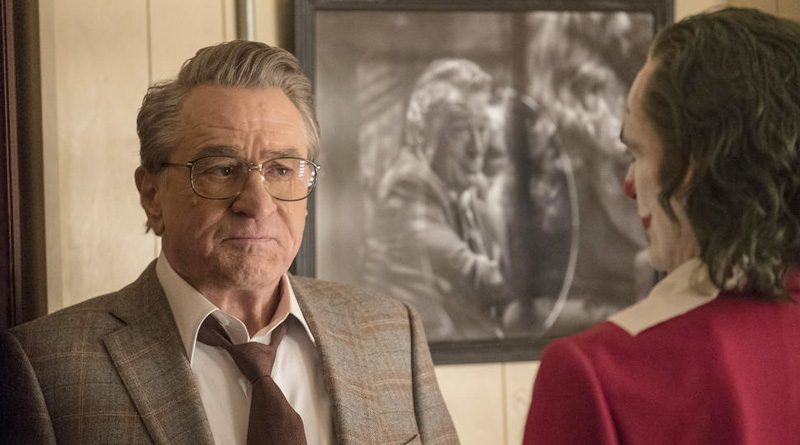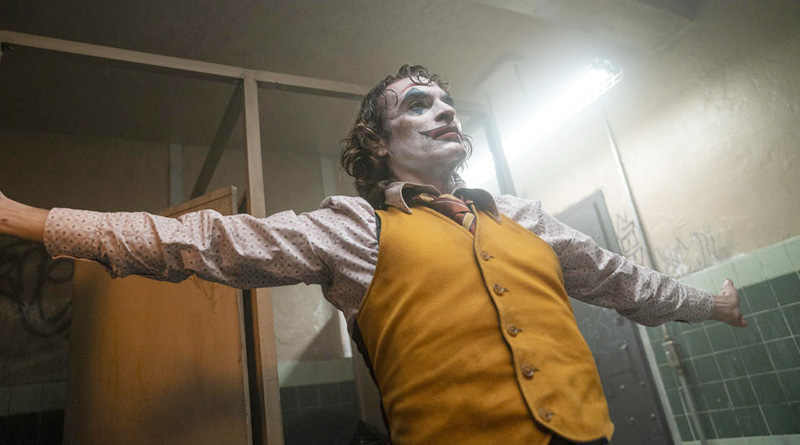Joker (2019) Review
You got to hand it to Joaquin Phoenix for fully inhabited his role of a loner on the verge of psychological breakdown in Joker, which also marked Todd Phillips’ rare departure from his usual comedy offerings (yes, he’s the one who gave us The Hangover trilogy and Starsky & Hutch). Sure, he tends to overact every now and then and I have to admit it takes some time to get used to Phoenix’s compulsive laughter condition. But his sheer dedication to method acting is undeniably worthy of praise, going as far as losing more than 22 kg to frighteningly gaunt-looking and nearly grotesque result.
Now, if only Todd Phillips’ script, in which he co-wrote alongside Scott Silver able to match Phoenix’s committed performance. But before I get to that, here’s a brief synopsis for Joker: Set in 1981 Gotham City, the movie follows Phoenix’s Arthur Fleck, who lives with his ailing mother (Frances Conroy) while making ends meet working as a party clown. He has a rare neurological disorder that causes him to laugh uncontrollably and particularly idolises Murray Franklin (Robert De Niro), a famous comedian and talk-show host who runs his successful namesake Late Night show.
He had a dream as well — a chance to become a stand-up comic and able to appear on the show someday in front of the audiences. But over the course of the movie, we gradually learn that Arthur’s pathetic life is nothing but a slow descent to self-destruction, resulting in an inevitable rage, anger and violence.
Back to the script, Phillips’ direct homage to Martin Scorsese’s Taxi Driver (1976) and The King of Comedy (1983) is both admirable but somehow feels like a watered-down version. No doubt that familiar themes like isolation, loneliness, despair and celebrity obsession, which previously covered in two aforementioned Scorsese’s movies are all here. And instead of digging deep into these subject matters, they feel surprisingly superficial — a result that makes all of Phoenix’s hard work in bringing his title character to vivid life seems like a waste of opportunity. An overall mixed feeling that Phillips and Silver’s script could have used some serious narrative polishes.

Because of that, it’s hard for me to sympathise Phoenix’s down-on-his-luck character who often gets used, bullied, humiliated and even underappreciated by some of the people around him. Again, blame it on Phillips’ slavish approach to the material. I can see that he wanted his movie to be edgy about how the world that Phoenix’s Arthur Fleck lives in the gritty Gotham City is all cruel and unfair, with a subsequent act of violence being the only logical solution of solving any problem. It’s just too bad all the supposedly inspiring homage that is integrated within the movie’s surface-level storytelling can only stretch so much.
The movie also wasted Zazie Beetz’s role as Arthur’s neighbour and possible love interest. A subplot that has a good potential somewhere but it is sadly underdeveloped, even though her character does bring a crucial revelation involving Arthur later in the movie.
Still, it’s hard to deny Phillips’ accomplished effort of turning the movie’s overall aesthetics closely resembled a 1970s character-driven psychodrama, complete with a spot-on grimy colour palette and soundtrack choices (Jimmy Durante’s “Smile” quickly comes to mind). Then, there’s Hildur Guðnadóttir, whose Hans Zimmer-like deeply ominous score does help elevate some of the movie’s compelling moments. Lawrence Sher’s award-worthy cinematography is equally a stunning piece of work, as he successfully captured the gritty underbelly of an otherwise fictional Gotham City.
Apart from Phoenix’s performance, the only other actor that I admired the most is Robert De Niro’s solid support as Murray Franklin, who does a great job channelling the late Jerry Lewis’ Jerry Langford part from The King of Comedy. Finally, Phillips’ sparse but vividly-captured graphic violence gives the movie a much-needed jolt.





